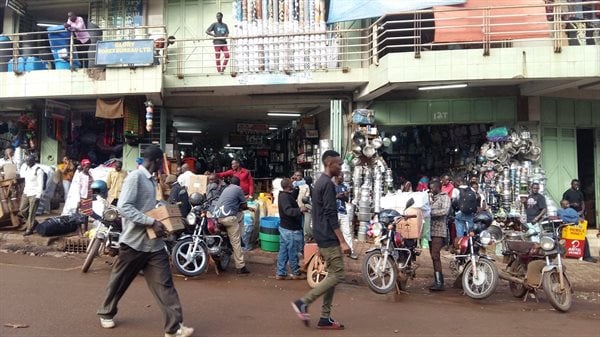#BizTrends2020: The future of retailing in sub-Saharan Africa

Retailing performance is driven by various factors, including economic growth, socio-political stability and a rising middle class.
Parallel to this, improvements in the ease of doing business and the collapse of former regional players like East Africa’s Nakumatt is giving room to new entrants.
South Africa, Nigeria and Kenya are key markets in value terms, while the industry continues to further modernise in promising markets such as Cote d’Ivoire.
With a projected GDP growth of 3 to 4% in 2020, the region’s retailing landscape is expected to be affected by government policies, social dynamics, technology and infrastructure developments.
Informal retailing is here to stay
The economic impact and contribution of the informal retailing sector remains undeniably critical in the region, with the channel representing up to 90% of the retailing value in countries like Nigeria and Uganda.In 2019, more governments, modern retailers, manufacturers and fintech have developed interest in the sector, as they realise the informal sector is not going to disappear anytime soon, despite modernisation across the region.
Hence, initiatives aimed at stimulating entrepreneurship, preventing fiscal leakage, and tapping into low-income consumers are expected to continue gaining momentum going forward. For instance, for the first time in 20 years, Ethiopia provided trading licences to 840 stores, mostly based in the Merkato open-air market in Addis Ababa.

Across the border, programmes like ‘Smart Duka’, which provide expertise and resources to improve operations of small informal shops, have been spreading in Kenya.
Meanwhile, the South African Competition Commission has called on the government to regulate and support spaza shops which are threatened by the expansion of modern chained retailers as the latter by modern supermarkets.
Rising middle-class will boost modern retailing
Modern grocery retailing, which only represents 4% of retailing value in sub-Saharan Africa, is expected to expand aggressively.This will be supported by the entrance of regional and international players like Carrefour, who will leverage their capital and expertise to expand niche channels like hypermarkets.
Rising urbanisation is expected to continue stimulating growth in convenience stores and supermarkets. Parallel to this, licence agreements and strategic partnerships between local and international players are set to become key competitive tools to rise their footprints. The trend is expected to be noticeable across emerging countries with a rising middle class like Tanzania and Ghana.
Similarly, the development and expansion of shopping centres across the region is expected to give room for anchor outlets like department stores, while providing platforms for specialist retailers selling apparel and footwear. For example, the imminent launch of the Douala Grand Mall, the first modern shopping mall in Cameroon with 160 stores spread across 17,415 square meters.
Synchronised shopping experience will reshape business models
Increased internet penetration and the influx of affordable smartphones will continue to reshape shopping behaviour, as consumers embrace the convenience of window-shopping and interreacting on social media from their mobile phones.In response to this trend, more retailers are expected to embrace omnichannel approaches, by either introducing their online platforms, or through strategic partnerships with leading e-commerce retailers like Jumia. Likewise, social media will continue to grow as a key marketing platform.
Parallel to this, online marketplaces like mallforafrica.com are expected to facilitate the integration of cross-border retailing. This will be consolidated by, ‘glocalised’ strategies like cash on delivery and mobile payment options, which overcome the low levels of formal banking.
While the trend unfolds, ‘click and collect’ will continue to gain momentum as it adds convenience and consolidates consumer confidence, while reducing company distribution costs. This is also expected to eliminate challenges caused by difficulties in locating shoppers’ addresses due to inadequate road mapping across the region.
The way forward
The growth of the regional retail industry is no longer questioned as it evolves from a traditional to a more modern landscape. However, beyond population and economic growth, tapping into this market will require a clear understanding of diversity in cultural backgrounds, disposable income, and level of infrastructure developments across countries.
Moreover, lessons learned from those who have been less successful should be headed. For example, the exit of regional players like Choppies highlight the need for adequate expertise and resources to succeed in this complex region.

About Christele Chokossa
Christele Chokossa joined Euromonitor as a research associate in July 2016. She is currently a consultant and focuses on Western European and African channels' distribution and digital consumer services. Before Euromonitor, she worked for four years as an analyst at a capital market research company.Related
Guideline to apply for R500m Spaza Shop Support Fund 2 days The legalisation of spaza shops in SA: an analysis of government efforts 3 Mar 2025 Red tape or progress? How registration woes are impacting spaza shops 28 Feb 2025 Spaza shop owners urged to register before deadline 14 Feb 2025 Key snack trends for 2025 - Euromonitor Intl 15 Jan 2025 #BizTrends2025: The future of tourism - transformative trends driving growth, sustainability, and innovation 13 Jan 2025

































